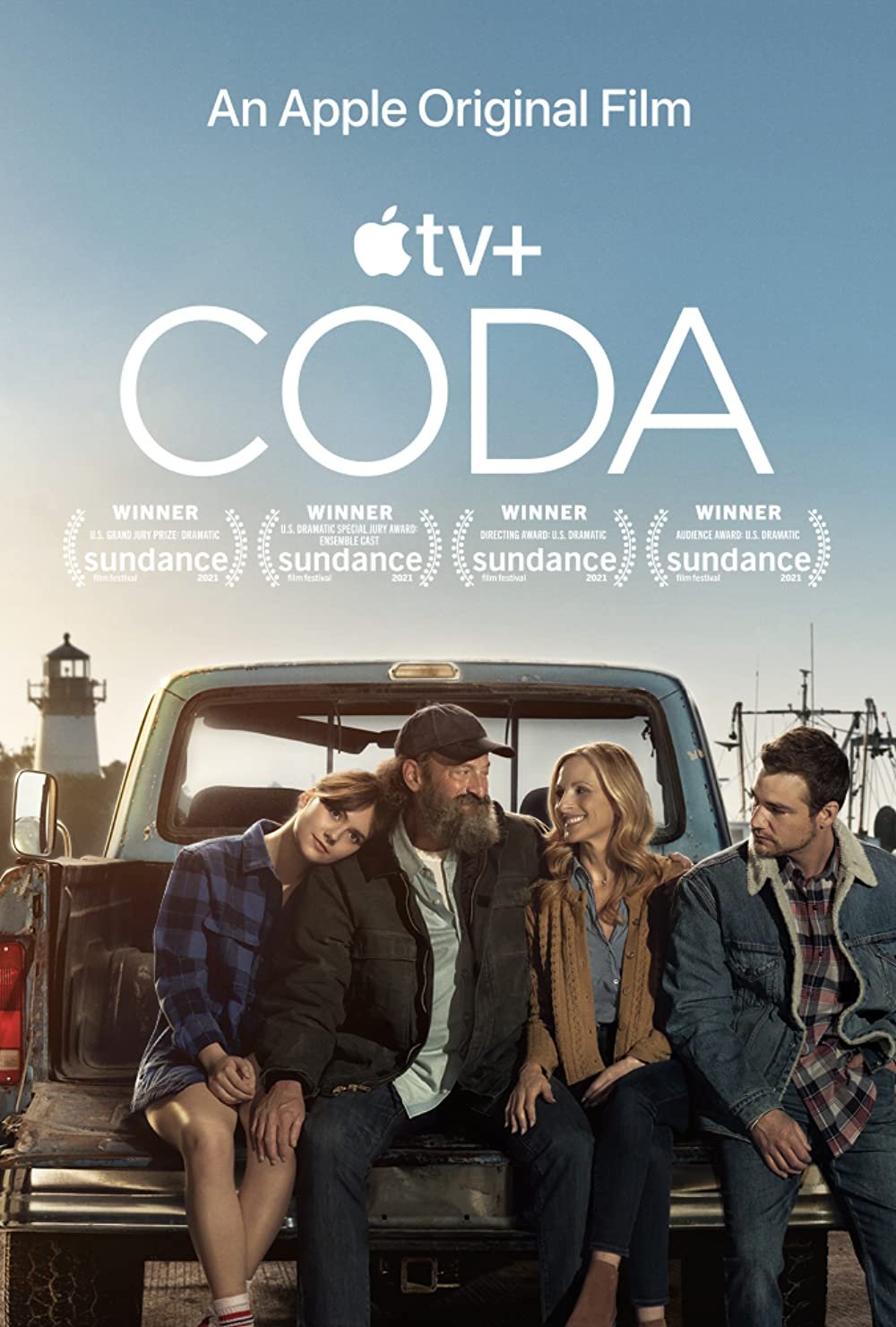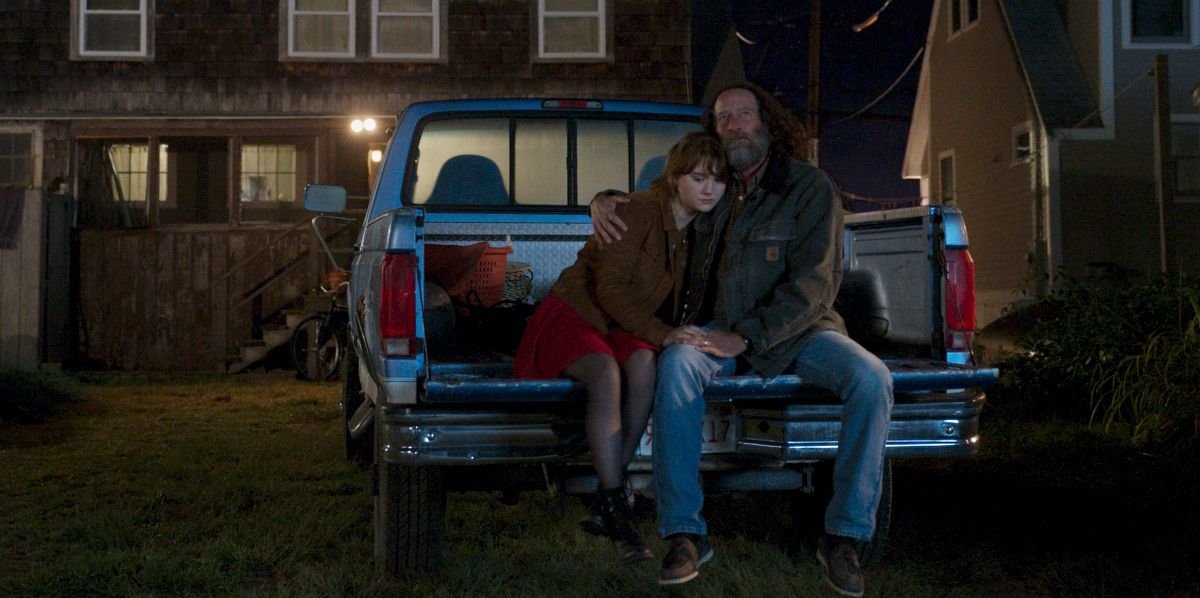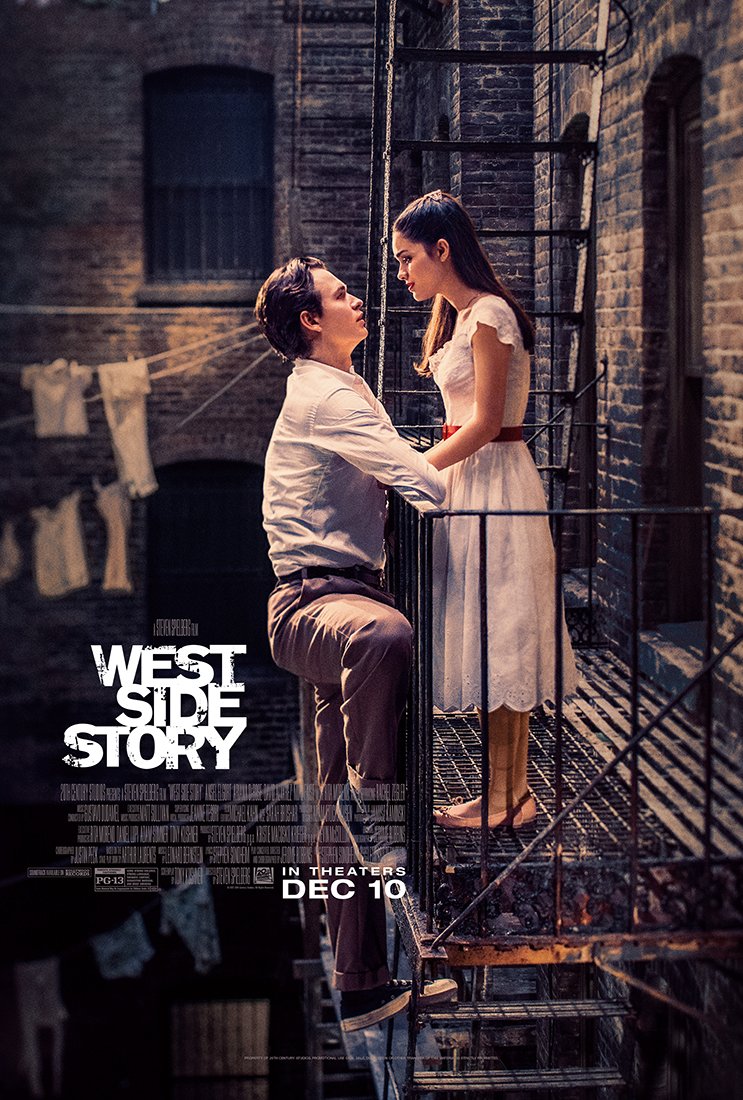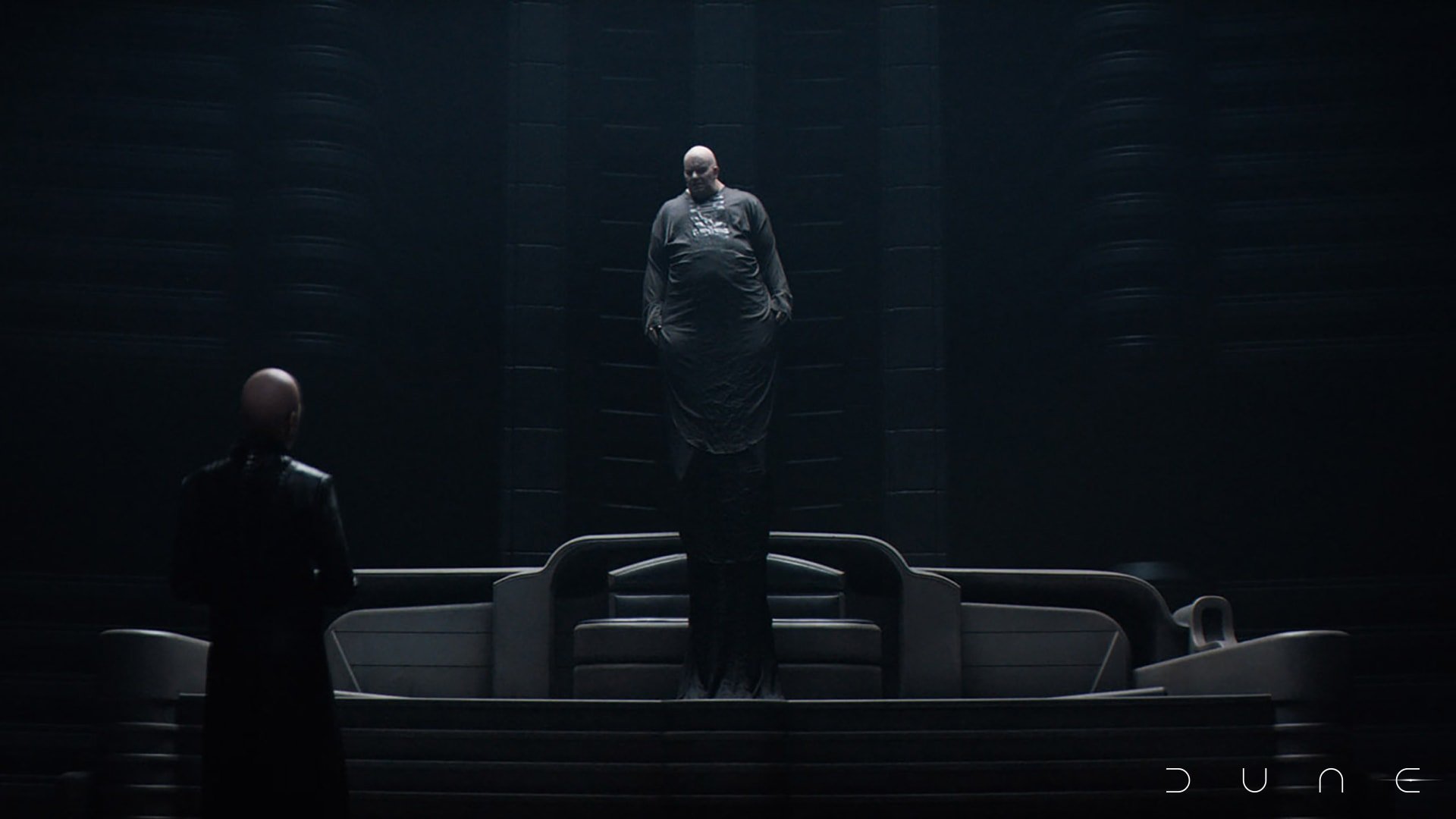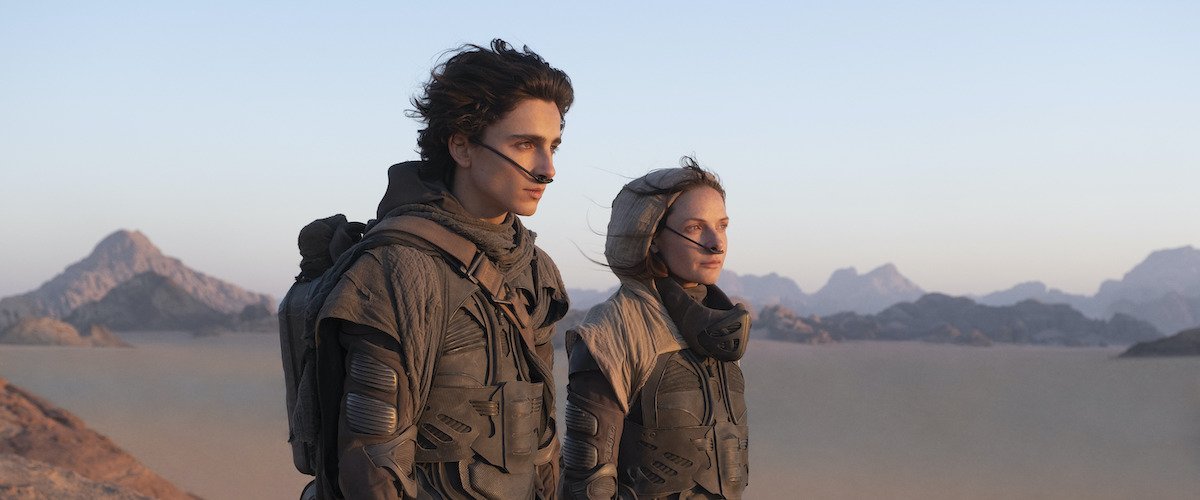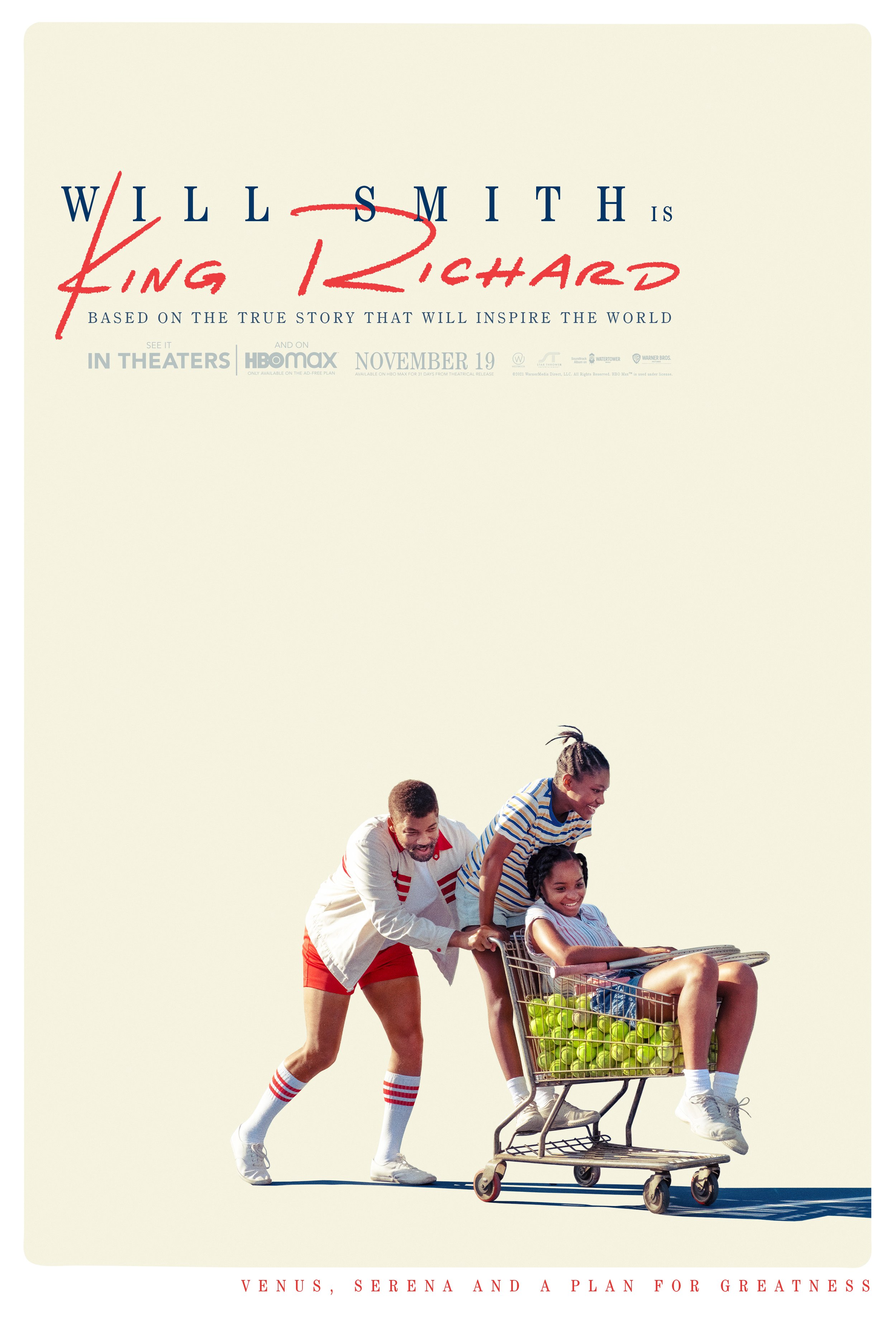Of all the best picture nominees, this one I probably the most interesting to me. CODA stands for “Child of Deaf Adults” , and is the story of Ruby Rossi (Emilia Jones), the only hearing person in her family, who has a passion for music. She’s torn between pursuing her love of music or abandoning her parents—her father is a fisherman, and eventually they’re busted by the Coast Guard for not having a hearing deckhand on board. Does Ruby give up her dream of music school to stay and help her family?
(Other reviews in this series: West Side Story, The Power of the Dog, King Richard, Belfast, Dune)
CODA has been nominated for three Oscars: best picture, best performance by an actor in a supporting role, and best adapted screen play (Of the big five oscars, we have three nominations. Not bad!) It’s rated PG-13.
I was really worried about this one—I didn’t think I’d like it. I loved it. It’s so good and deals with so many issues around deafness, but also family!
Ruby’s parents are pretty isolated. At one point, Ruby’s mom, Jackie (Marlee Matlin) talks about how they have their own Deaf community, to which Ruby replies, “Who, your deaf friends? You see them once a month.” And that’s a real issue for her family. Even though her father, Frank (Troy Kotsur) is part of a family that’s been fishing in Gloucester, MA, for generations, he’s not “buddy buddy” with the fisherman. His son, Leo (Daniel Durant), who is also Ruby’s older brother, tries, but it’s hard because there’s no one to interpret for him, and reading lips only gets you so far. (This is illustrated perfectly in a scene where Leo goes to get a beer with the other fishermen, and he just sits at the table, staring at his beer can and missing what is going on around him.) Ruby has to translate everything for her parents—at their doctor appointments, at meetings, even calling her grandmother when her mother doesn’t want to use the video relay because of an interpreter being present.
( I will say, I get that and it’s very weird. It’s like this other person is in on these personal details of your life and you really wish they weren’t.)
(Also: I groan when I hear people say, “I’m deaf (or I have CF, or I have whatever) and I can do ANYthING!” No, you really can’t. You can’t! I can’t! I can’t scuba dive, for example! If you are profoundly deaf you need help interacting with the rest of the world. That’s vitally true, and I’m glad CODA showed it, because it’s too often easy to say “oh, well I don’t need help”. )
The family’s “plan”, if there was one, is for Ruby to continue being the hearing deckhand that the boat needs to operate under Coast Guard guidelines. She’s also their line to the world. But when she joins the school choir and finds out that her music teacher thinks she has a shot at a scholarship to the Berklee College of Music, Ruby frantically tries to divide her time between fishing, school, preparing audition material, and being a normal teenager.
Daniel Durant (Leo), Marlee Matlin (Jackie), and Emilia Jones (Ruby) in CODA.
While Ruby’s family intesenly depends on her—something that her brother tries to get them to do less of, hoping they’ll rely on him (He has lip reading skills, and tries to insinuate himself into the hearing culture around him)—Ruby also expresses her ambivalence about leaving her family when she tells her teacher, “I’ve never done anything without my family.”
The Rossis are a vibrant, extroverted family, which can embarrass Ruby, but as one of her friends says, “You parents still like each other!” They’re close knit and that causes tension but they also really do want what is best for each other—even if that means change.
(There’s a crucifix in their house and Ruby wears a small Miraculous Medal throughout the movie. Loved it. :) )
Also from a music standpoint, it’s also accurate. Auditions tend to run the way they do in the movie and if you walked in without your music, you’d definitely get those looks. And you’d also definitely get those looks if you turned up dressed the way Ruby was dressed! (Also big dog, little dog? YES! cracked me up. But I wanted to scream, Ruby put on your concert dress it is right there!!!!!!!! when they left for the audition!)
If there was justice in the world, this would be the movie that people talked about instead of the inane The Power of the Dog, but, we sadly don’t live in this world. While there’s some crude sexual humor, this is a very warm portrayal of a loving family that has flaws and faults but also great strengths.
Kotsur is nominated for Best Supporting Actor for his portrayal of the Rossi family patriarch, Frank, (He just won the BAFTA for it) and he does a great job creating a believable relationship with his daughter, and the struggle to stay with what’s familiar as opposed to being vulnerable to new people, who may or may not be totally straight with him.
Emilia Jones (Ruby) and Troy Kotsur (Frank)
I found this movie totally delightful, and I highly encourage you to see it.
